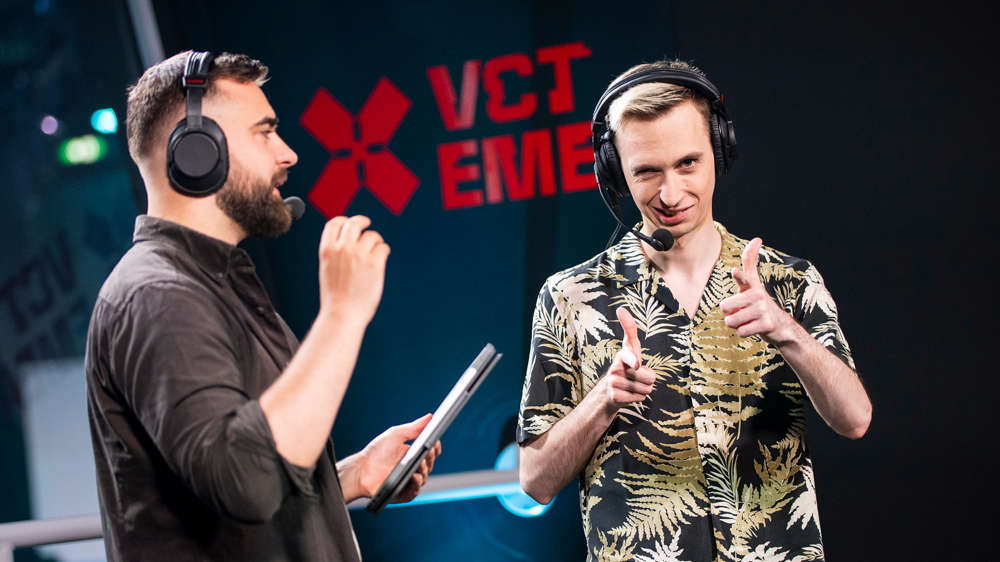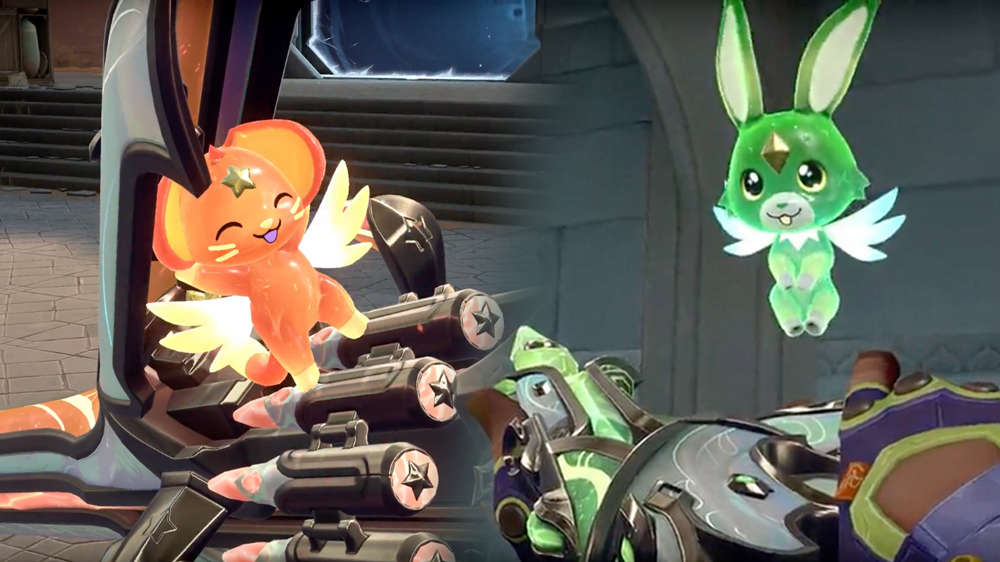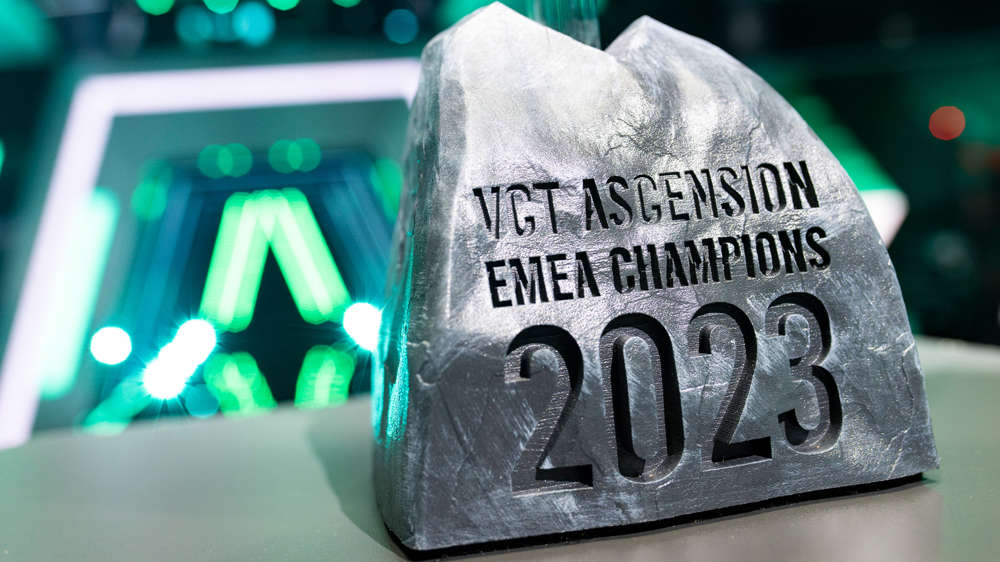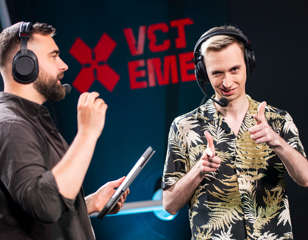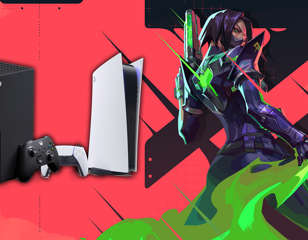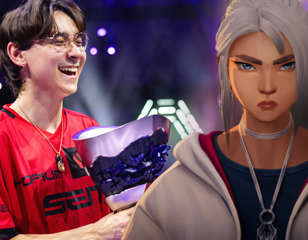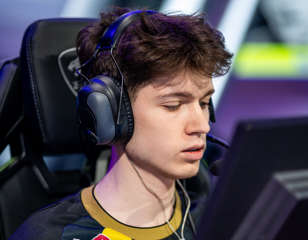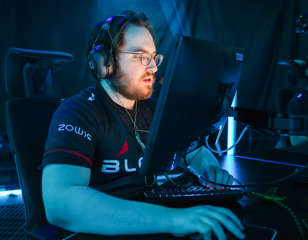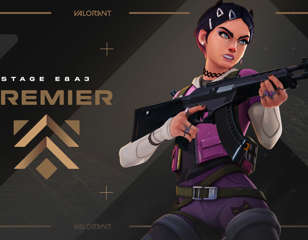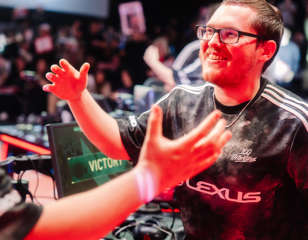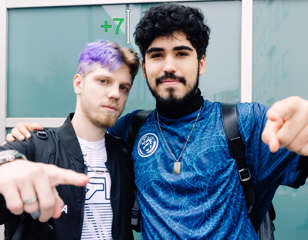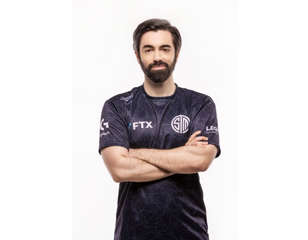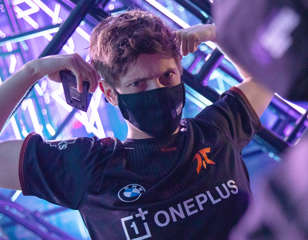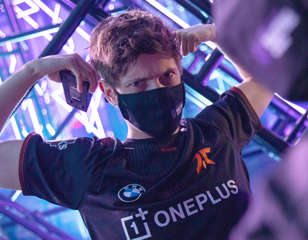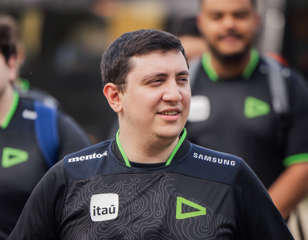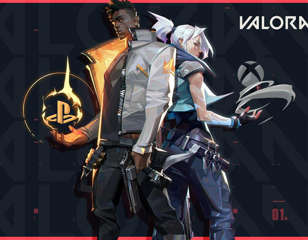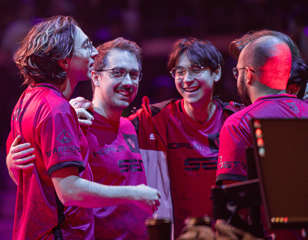Interview With Rod Breslau On The Expectations and Outlook for VALORANT
We recently sat down virtually with renowned esports journalist Rod Breslau (Slasher), to discuss the state of VALORANT esports.
Daxa babyblu Angresh
21st Jun 2020 16:00
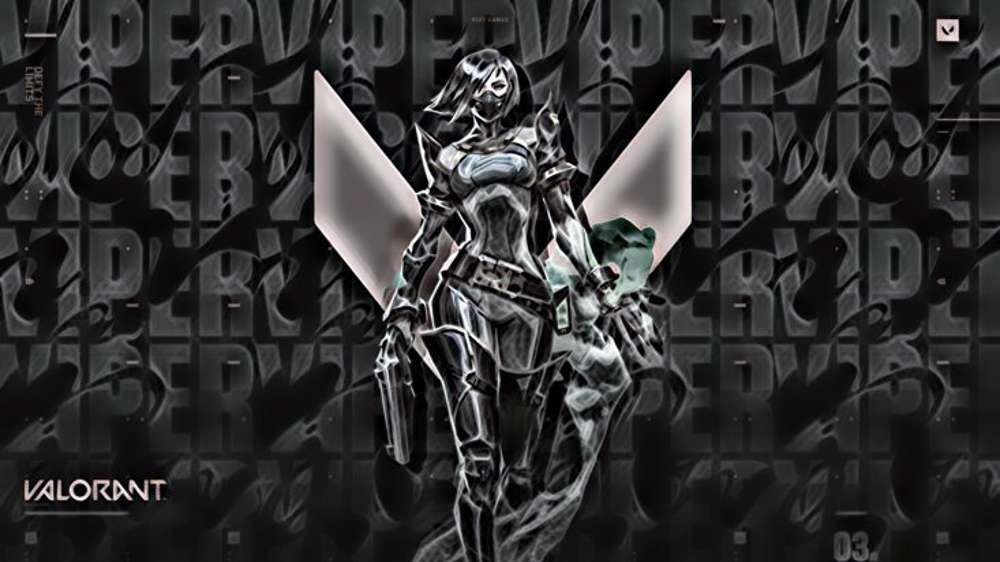
We recently sat down virtually with renowned esports journalist Slasher, to discuss the state of VALORANT esports. Slasher has been seen on tournament broadcasts, podcasts, TV, and has worked for Sony, ESPN, Yahoo, and theScore, among many others. Mostly known for his industry insights and reporting, he is a self-described “esports boomer”, having competed in Quake in the past, and even very recently destroyed explosive young fps talent in Diabotical 1v1s. We reached out to him to delve into his perspective as someone who has been around in esports scenes for a while, and chat about first VALORANT the game itself, and then about its nascent esports scene, which will be the contents of part 2.
The following interview has been edited for brevity and clarity.
Is it fair to say that you and most other people in your position stand to gain a lot from VALORANT being successful? You don’t want to see it fail?
Slasher: This is actually a very good first question. I’d say it’s pretty accurate for all the games in the industry. Just personally, I am a first person shooter player myself. First person shooters are my home game, so when Overwatch came out and when this game [VALORANT] came out, I was more personally invested because I’ve been playing Quake, a deathmatch game for 20 years and I haven't been playing CS [the Counter-Strike series] as long because Quake’s been my baby but I’ve been playing CS:GO pretty much since it came out. I probably have a little bit even more investment along this question because I actually actively play these games and I would like them to succeed just based on, not even a professional level in terms of esports getting bigger, but I just like the games.
But on a professional level, I would think that VALORANT is pretty similar to every game, and Overwatch is a pretty good example of the last major huge game that turned into an esport if you’re not including the autochess stuff that came out the last few years, in that, it does benefit everybody in the community and in the scene if these games are successful. The more that these games are successful as esports, the bigger and more successful the overarching industry that is “esports” will be. So I do think it’s fair when you, if you’re looking at it from the outside, it is I think a worthy thing to be somewhat skeptical of too much positivity around a certain game or community or scene because it is generally a good thing for everyone if that game or scene succeeds. So now I try to be pretty honest with myself and with people - and this isn’t just for VALORANT, this is for any game. I don’t just praise games because I want the industry to succeed. I try really hard not to shill anything, and I also don’t hate games or criticise games due to - and I think some of my colleagues in the industry aren’t so good at this - a personal slight I might have with a company.
If I had beef with Blizzard at a certain point, and I had been blacklisted by Blizzard for reasons within Overwatch, I’m not going to hate on Overwatch or criticise Overwatch because I have a personal issue with Blizzard at the time. I really try to make sure that my criticism or my praise is directly related to whatever is happening within the scene or the community or the game or with the company or whatever, and not my personal issues. If I’m getting paid by, let’s say I’m doing casting and I’m getting paid for it, I’m not gonna let that affect my personal opinion or what I say about the game either. I’ve made some pretty strong proclamations about how VALORANT has potential to be the biggest FPS esport in the world, and I actually think I’m not quite so sure about that now. It’s really early, but I said that just based on my perspective on the industry. I’m not trying to push it so that esports is bigger. I’d rather it succeed, for the same reason I’d rather Overwatch succeed and everything around Overwatch to succeed so that esports as a whole is bigger, but I’m not going to do it specifically to make esports bigger. That’s really fake, that’s bullsh*t, and people shouldn’t artificially push these games competitively if it’s not working, or if there are problems. All it does is cause more problems.
We’ll talk about metrics for success later as well, but in terms of what you’re talking about now, we know that Riot has been silently backing third-party tournaments behind the scenes, not really putting their name on it but they'll give them a bit of money and authorization and they work with them. What level of involvement do you personally think Riot should employ with regards to competition?
Right now I think that they honestly are going about as good as they could. Right when a game comes out the developer/publisher should not take full control over the game’s competitive scene. It should, as much as it can, evolve organically. I think in terms of the publisher or developer, Riot, putting money into the scene, the prize money, that is what should happen, to be completely honest. It's not so much different to how Blizzard treated Starcraft II early on, when StarCraft II was doing great. Blizzard still gave almost all of their money to GSL for the prize money for all those early seasons and Blizzard funded quite a lot of early Overwatch tournaments for ESL and DreamHack, and a few others.
I think given the current state of the world right now and on top of that the current state of online media, and then on top of that the current state of how tournament organizers are trying to make money and to get by - I'm not going to shed a tear for the multi-billion-dollar corporation that is Riot or Blizzard giving $20,000 prize money to a tournament organiser to run it. That is what should happen to alleviate some of the concern from the TOs and some of the problems that they may have recouping the cost of tournaments, especially the prize money to get the players involved. I think it is the responsibility of the developers and publishers to support, financially, the prize money early on, but they shouldn’t do more than that.
There shouldn't be an LCS for VALORANT anytime soon. I think that eventually will come, but it should not be starting out when the game is first launched and it should be more on the community and third-party tournament organizers and the teams to organize things themselves and see how they shake out. That stuff is necessary, but it really is more on the game being ready, and more on Riot internally being ready to support a multimillion-dollar structure with teams and organizations vying for spots and franchising and all that. For me it’s much more about having the game be in the right spot. I don’t see the VALORANT Championship Series happening for another two years.
One often overlooked aspect of that especially for an esports title is accessibility - both in terms of disability, financially (being a free-to-play game, it can run on really low-spec machines) and having servers in all regions. How well are they doing and what do you think the next big thing they need to focus on is in order to get everyone playing the game?
They've taken the best approach they can. The game is free-to-play to start and because it is Riot games there is an extremely large focus on Korea, China, and South America - all regions which they are either super successful in, especially being owned by Tencent, and the game [League of Legends] being the most popular game in the world and being by far the most popular game in China and in Korea specifically. Then there is South America who has an extremely long history with first person shooters and has a long history with supporting games like Counter-Strike. Those are the regions that they do need to focus on, and they’ve done a pretty good job of supporting that, and as you’ve mentioned the games were made specifically to run on sh*tty computers and to not need the latest graphics driver, the latest PCs to run these things. So you know, in all honesty they’ve put themselves in the best possible position for this game to succeed and they need it to succeed in a worldwide way and not just in a domestic American fashion, to really be a truly global esport and to be the FPS esport that they want it to be.
- Read more: Have We Met the Real VALORANT Gameplay Yet?
The biggest concern for the game, and it was always intended this way, is that it is a hard game. It is easier than Counter-Strike in a lot of ways, but as much as people want to compare this to Overwatch and other games, it really is Counter-Strike with abilities. In general, Counter-Strike is a really hard game. Counter-Strike is still super popular, and it’s grown past over a million people concurrently playing even over the last few months, but in general it is a really hard game. It being a hard game is always going to make it difficult to gain a huge amount of players.
League, of course, has an extremely high skill ceiling, and of course there are incredible players in the world, but it is relatively easier to play League of Legends than it is to play VALORANT on the lower level, on the skill floor, because of the punishing nature of the game itself. You get hit in the head, and you die. There are things like that that are really punishing as a player. If you are a new player to first-person shooters or this type of game, there are certain mechanics that are very old school and that are implemented into this game intentionally, which I actually think are fine and don’t really mind because I’ve been used to it for so long. But if you’re a new player - you can play like 20 games and go 0-20 every single game and this is something that VALORANT is going to have to try and overcome.
The other things like the anti-cheat becoming hugely unpopular with a massive amount of people is not good and there’s things that Riot is going to have to definitely be worried about. Then there are other things such as many first person shooter players or elitists in the community not liking Riot for a variety of reasons over the years, and then that making them not want to play the game. There are some hurdles that Riot is going to have to overcome to make the game accessible to a lot of people.
And on top of that, you have cultural issues like a senior developer of the game, who is a woman, not wanting to use voice chat in her own game because of the amount of toxicity in the games that she’s getting. I will admit this is much more of a problem with all video games, and it’s not specific to VALORANT, but unlike League of Legends, voice chat is directly inside of VALORANT, which I do think is necessary, I do think it’s needed, but with that you’re going to get huge toxicity problems. If Riot is trying to be inclusive they’re going to have to address this in some way. I think the ping system in Apex Legends is a very good step forward in terms of making that better so you don't have to use voice chat and you can get around some of these things. The ping system in VALORANT I think is okay, it can be improved on but it’s actually a pretty good start. So Riot does have a bunch of things they’re going to have to look at when they’re making this a big game.
How big do you think they need to get in order to be considered successful? How much is okay? This is hardly the first punt a developer has made into making a worldwide esport, but especially with battle royales we have seen them die off rather quickly. How big does VALORANT need to be, and is it about size, or something else?
Well, just to address the battle royale part - a few things here, one, the game mode that is battle royale is inherently a competitive multiplayer game because the entire game is built upon a multiplayer format. As we've seen, throughout either PUBG or Apex [Legends] or Fortnite battle royale does have some issues when it tries to become a super competitive esport based on the mechanics and nature of the game [causing] all types of problems throughout all of the different battle royale games in terms of making it a huge esport. Battle royale as a game genre is going to have to go through these growing pains and is probably going to take some more time to get those games to where they need to be for a full-fledged esport.
At the same time, even though PUBG has fallen off quite a bit here in North America, and Apex has been calming down, PUBG is still gigantic in Asia, is still huge in India, PUBG Mobile is still enormous across the world and Fortnite is still the biggest game in America or in the world in terms of the cultural impact that it has. It's not like they're really hurting for viewership or popularity - the top three of Apex Fortnite and PUBG are still doing quite well in my opinion. Maybe the esports side isn’t doing as good for a variety of reasons including Epic dropping the ball in a lot of ways, but I still think that'll be okay.
- Read more: What Has VALORANT Beta Taught Us?
Now in terms of how that compares to VALORANT, maybe the expectations set from the community are higher. It’s not like me tweeting or talking about this in interviews is going to make Riot be like, “well, now this has to be the biggest game in the world.” But I do think that, with as much as people have hyped the game, including myself, the expectations of this game are really high.
It can’t just be a big game, it needs to be a worldwide phenomenon. It needs to take off in Korea, it needs to take off in China, it needs to take off in South America, especially in Brazil, and it needs to have a solid following here in North America and in Europe. If it doesn’t have all of those things, I would consider it a failure. Is that a really realistic way of thinking about it? Maybe not, and Riot is never going to give us the concurrent player numbers. Considering this is Riot’s first game launch since League of Legends, considering all the hype around the media, considering this is the semi-successor to Counter-Strike - which is the most prolific, and successful, and notorious first-person shooter, and multiplayer game, of all time - and considering it’s launching in all these other regions, with all of this put together, the expectations are really high internally for Riot.
We’ve only had a few beta tournaments so far, and now that the game has launched, I have to be honest; viewership, since the game launched, has been pretty lacklustre. Not even a little bit, it is definitely lacklustre.
Even if you compare it to Overwatch beta tournaments, it’s not holding up.
It’s true, the Overwatch beta tournaments seemed to have better viewership than the VALORANT beta tournaments, and on top of that, you have several major streamers who, you know, I saw an interview with Courage and Nadeshot a few days ago, who - they like the game, and they want to play the game, but they’re averse to playing it because their viewership is not there. Even people like Summit, who comes from Counter-Strike, and VALORANT is his game, he finds it boring because the game has problems with watchability on a pro-level. Now I had a lot of fun watching the Twitch Rivals tournament, and I think Counter-Strike as a model for a game - going by like, a round-based game - I think Rainbow 6 also has proven to be way more successful than like a battle royale title, even more than game like Overwatch which is still a clusterf*ck to understand for a normal person looking at Overwatch for the first time, VALORANT is way easier to get. So it definitely has some advantages in that way but you would think that viewership would be a bit better than it is so far.
Follow GGRecon for part 2 of this interview with Slasher.
Images courtesy of Riot Games

About The Author
Daxa babyblu Angresh
Daxa Angresh was a freelance contributor to GGRecon.
